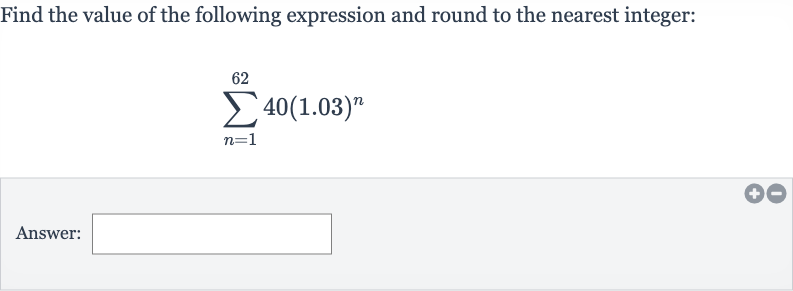Full solution
Q. Find the value of the following expression and round to the nearest integer:Answer:
- Given Series Information: We are given a geometric series with the first term and the common ratio . The sum of the first terms of a geometric series is given by the formula , where is the number of terms. We need to find the sum of terms.
- Calculate First Term: First, let's calculate the first term of the series: .
- Calculate Common Ratio: Now, we calculate the common ratio , which is . Since it is greater than , the series is increasing.
- Calculate nd Term: Next, we calculate the term of the series using the formula for the term of a geometric series, which is . So, .
- Use Sum Formula: Now we can use the sum formula for a geometric series: . Plugging in the values we have .
- Perform Calculations: We perform the calculations for the sum: .
- Calculate Exponentiation: We need to calculate . This is a large exponentiation, and it's best to use a calculator for this step to avoid any math errors.
- Substitute Value: After calculating , we substitute this value back into the sum formula to get the exact value of the sum.
- Round to Nearest Integer: Finally, we round the result to the nearest integer as the question prompt asks for the value rounded to the nearest integer.

